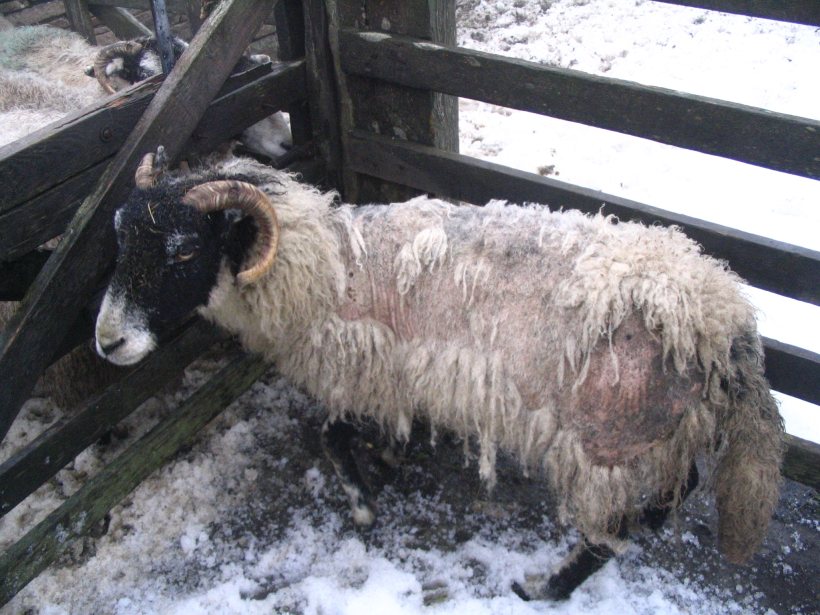Scientists develop new highly sensitive sheep scab test

Scientists have made a technical breakthrough in the monitoring and control of sheep scab with the development of a new highly sensitive test.
The new diagnostic technique exploits a protein named Pso EIP-1 to detect asymptomatic infestations with very high levels of accuracy.
Importantly, it will enable differentiation between vaccinated and infested sheep, scientists at Edinburgh's Moredun Research Institute and Dundee's James Hutton Institute said.
Sheep scab, or Psoroptic mange, is caused by an infestation with the parasitic mite, Psoroptes ovis, resulting in a severe skin irritation in livestock.
The disease is highly contagious and has profound financial and welfare implications in areas where it is endemic worldwide.
Scientists explain that rapid and accurate diagnosis is essential to help control this parasitic disease.
Conventional diagnosis involves time-consuming and expensive analysis of the skin or wool of the sheep under a microscope, which lacks specificity and sensitivity.
It also often fails to detect asymptomatic cases, which are responsible for spreading the parasite.
To overcome this issue, the team looked at methods of detecting the mite before symptoms occur.
They discovered that early infestation by the mite triggers an immune response in the sheep, which leads to the production of antibodies associated with particular proteins that are excreted by the mite.
One particular protein, termed Pso o 2, was found to specifically induce antibodies in sheep blood in the early stages of an infestation and before the appearance of symptoms.
It was shown that Pso o 2 is also an excellent vaccine candidate as it triggers antibody production in the sheep, offering a degree of protection against mite infestation.
Dr Stewart Burgess, Principal Investigator at Moredun, said: “Although Pso o 2 is also a promising candidate for the prototype sheep scab vaccine being developed at Moredun, it cannot be used both diagnostically and in a vaccine as vaccinated sheep would give a positive test even if they weren’t infested.”
However, the recent research between the institutes has identified, characterised and produced an alternative protein, Pso EIP-1, which can detect asymptomatic infestations with very high levels of accuracy.
It also distinguishes between infested animals and those that have previously been vaccinated with Pso o 2.
“Pso-EIP-1 overcomes this problem by allowing us to differentiate between infested and vaccinated animals, without compromising on the sensitivity and specificity of the diagnostic test,” continued Dr Burgess.
”It will provide us with a new diagnostic antigen that can be used once the sheep scab vaccine is commercially available.”








